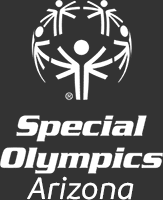
Treatments for Autism
Treatments for Autism
Autism, or autism spectrum disorder (ASD), is a complex neurodevelopmental condition that affects individuals in various ways. While there is no cure for autism, there are numerous treatments and interventions available to help individuals with ASD thrive and reach their full potential. These treatments are tailored to the specific needs of each person, and early intervention plays a crucial role in improving outcomes. The Special Olympics Arizona team is breaking down these different types of treatments for autism, ranging from behavioral and educational therapies to medications and alternative approaches, and which treatment options might be best for which individuals.
Types of Autism Treatments
Since autism is a spectrum disorder, meaning each individual is affected differently and there is a wide range of symptoms and severity of symptoms among individuals who are diagnosed with autism, there is no one-size-fits-all treatment option that will work for every individual who is diagnosed with autism spectrum disorder. The type of treatment your child or another individual receives for their autism diagnosis will depend greatly on their individual needs, and as such, there are a wide variety of treatment options available. Some treatments are geared towards therapies to improve speech and behavior, while others are medicated-based to help manage medical conditions related to autism spectrum disorder. Some different treatment options include:
Behavioral Therapies
Behavioral therapies focus on addressing specific behaviors and teaching new skills. Some common behavioral therapies include Applied Behavior Analysis, commonly referred to as ABA. ABA is a structured approach that aims to improve social, communication, and behavioral skills. It often involves one-on-one sessions with a trained therapist. This approach can be used to improve a number of different skills that individuals may struggle with due to autism. Discrete trial training, which uses simple lessons and positive reinforcement to work on improving behaviors; pivotal response training, which helps develop motivation to learn and communicate; and verbal behavior interaction, which focuses on language skills, are all therapies that are under the umbrella of ABA. Other common behavioral therapies include the Early Start Denver Model, or ESDM. ESDM is a play-based therapy designed for very young children with autism. It focuses on social interaction and communication skills.
Many individuals with autism have sensory difficulties, and sensory integration therapy can be an excellent solution for those children or individuals. Sensory integration therapy can help individuals with ASD learn to deal with sensory information such as bright lights, certain sounds, or the feeling of being touched.
There are a wide range of therapies that fall into the behavioral category that can help greatly improve the way your child interacts with the world around them, as well as teach them valuable skills and motivations that can have a lasting impact on their quality of life.
Educational Therapies
Children with autism often respond well to highly structured education programs, and these educational therapies are crucial for children to help them succeed in school and beyond. These therapies include: special education services. Many children with autism benefit from individualized education plans (IEPs) or 504 plans that provide support and accommodations tailored to their specific needs. Successful programs often include a team of specialists and a number of different activities to improve social, communication, and behavioral skills. Early intervention is important for individuals with autism, and children who begin intensive education therapies around preschool age often show great progress with an individualized behavioral approach.
Developmental Therapies
Developmental therapies promote overall growth and development. They include things like occupational therapy, which helps your child learn life skills such as feeding, dressing, and bathing themselves, which can also greatly improve their quality of life and ability to relate to their peers. Occupational therapists work on improving fine motor skills, sensory processing, and daily living skills. Physical therapy can also serve children and adults with autism, should they have any difficulties with motor skills. Physical therapy focuses on improving these gross motor skills and providing options for physical fitness that meet an individual where they are in terms of fitness and overall health. Speech therapy can also help individuals with autism improve their communication and language skills.
Social-Relational Therapies
Social-relational therapies concentrate on improving social skills and relationships. These therapies include social skills training, which aims to help individuals with autism learn to interact more effectively with peers and adults. It can also include relationship development intervention, which focuses on fostering authentic social connections and relationships among an individual’s family and their peers. Social skills groups can be a great place for individuals with ASD to interact with other individuals with autism and learn valuable social skills that they can bring outside of the group and use in their daily lives.
Medications
Medications may be prescribed to address specific symptoms or co-occurring conditions associated with autism, such as anxiety, attention difficulties, or aggressive behaviors. It’s important to note that medication should be carefully monitored and adjusted by a healthcare professional. No medications can improve the core signs of autism spectrum disorder; they can only help address symptoms that may occur in relation to ASD.
Nutrition
A balanced diet can be important for individuals with autism. Some individuals may have dietary restrictions or sensitivities. Nutritionists or dietitians can offer guidance on appropriate diets.
Alternative Therapies
There are various alternative and complementary therapies that some individuals and families explore. Speaking with your doctor or another specialist can help provide you with personalized guidance on which therapies might be beneficial for your child’s specific situation. These may include things such as dietary interventions and chelation therapy. For dietary intervention, some families try gluten-free, casein-free, or other special diets to manage specific behaviors or symptoms. Chelation therapy is an alternative therapy that is intended to remove heavy metals from the body, although it is not recommended and has potential risks. Speak with your doctor before undertaking any alternative therapies, especially those that are not recommended, as they can have adverse side effects.
It’s important to consult with healthcare professionals, including pediatricians, developmental pediatricians, and autism specialists, to determine the most appropriate treatments for an individual with autism. Effective treatment often involves a combination of approaches tailored to the person’s unique strengths and challenges. Early intervention and ongoing support can significantly improve the quality of life for individuals with autism and their families.



